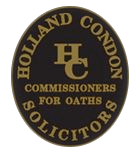The Multi-Unit Developments Act, 2011 came into effect on 1 April 2011. It regulates the ownership and management of the common areas of multi-unit developments, and provides for the setting up of owners’ management companies to manage such areas.
The Act provides that an owners’ management company must be set up, and the common areas of the development transferred to it, before the developer sells any units. For existing developments where one or more units had already been sold, the developer had 6 months from when the Act came into effect – until 30 September 2011 – to transfer ownership of the common areas.
**New multi-unit developments
The Act places obligations on the developer of a multi-unit development before the sale of any unit in the development may take place:
•An owners’ management company must be established. The common areas of the development must have been transferred to that management company. This must be done at the expense of the developer.
**Existing multi-unit developments
In developments where a residential unit had already been sold but the common areas had not been transferred to the owners’ management company, the developer was obliged to transfer ownership of the relevant parts of the common areas to the owners’ management company within six months of the date the Act came into effect – that is, by 30 September 2011 at the latest. The developer remains responsible for the completion of the common areas.
### Apartment Owner’s Rights
Each residential unit is entitled to membership of the owners’ management company and is generally entitled to one vote. Where alternative arrangements are already in operation, these may be continued provided they are just and equitable.
In some existing developments, directors appointed by the developer are entitled to remain as directors for life. This is no longer possible since 1 April 2011 and directors in place on 1 April 2011 must cease to be directors by 1 April 2014 at the latest. All new directors will be limited to a term of 3 years.
***Obligations of owners’ management companies
#Owners’ management companies must comply with company law generally and with the specific obligations imposed by this Act. The main specific obligations of an owners’ management company to the members – the owners of the units – are as follows:
#Register of members
The company must supply the buyer with a share or membership certificate and ensure that the register of members is updated. The members are obliged to keep the company informed of any relevant changes.
#Annual report
The company must prepare an annual report and hold an annual meeting to discuss the report. The report must include details of income and expenditure, annual service charges, the sinking fund account, planned expenditure on maintenance and repair, insurance cover and contracts entered into by the company. The members must be given 21 days’ notice of the meeting and be provided with the report 10 days before the meeting. The annual general meeting must take place reasonably close to the multi-unit development unless 75% of the members of the company agree otherwise.
#Service charges
The company must establish a scheme for annual service charges to pay for the maintenance, insurance and repair of common areas within its control and for the provision of common services (for example, security) to unit owners. The initial charge may be set without holding a meeting of the members but, in general, these charges must be approved by a general meeting of the members. If over 75% of the members do not approve the proposed charge, the existing charge must remain in place. The service charge may not be used to pay for matters which are the responsibility of a developer or builder unless this is agreed in writing by 75% of the members of the company. This approval may only be given if 65% of the units are sold and can only come into effect three years after the transfer of ownership of the common areas to the owners’ management company. In the case of unsold units, the owner, including the developer, must pay the service charge. The service charge must be calculated on a transparent and fair basis and expenditure must be properly recorded.
#Sinking fund
Within 3 years of the transfer of ownership to it (or 18 months in the case of existing developments, that is, by 30 September 2012), it must establish a sinking fund for spending on refurbishment, improvement or maintenance of a non-recurring nature of the multi-unit development. Unit owners are obliged to make contributions to it (including developers in the case of unsold units). The Act provides that the amount is to be €200 annually or such other amount as the members agree. Contributions to the sinking fund must be held in a separate account.
#House rules
The owners’ management company may make house rules for the effective operation and maintenance of the multi-unit development. These rules must be agreed by a meeting of members but the first set of rules may be made by the company before the sale of the first unit. Where a unit is let, it must be a term of the letting that it is subject to the observance of the house rules by the tenants.
#Long-term contracts
The company may not enter into contracts with providers of goods and services which are to last for more than 3 years.
#Dispute resolution
Any person affected may apply to the Circuit Court for an order to enforce any rights conferred or obligation imposed under the Act. This includes the owners’ management company, a unit owner, a trustee under a will or other settlement and the developer.
The Court, instead of making an order, may direct the parties to attempt to solve the matter by mediation.
– legal newsbrief from Holland Condon solicitors Kilkenny




